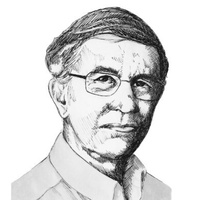John Kingston
Founding Chair of Access
As founding chair, John Kingston helped shape Access’s core purpose - to change how money flows through the social sector. Drawing on decades of experience across finance and frontline organisations, his vision was to reach those excluded by both traditional grantmaking and commercial finance. Ten years on, he reflects on why Access was created, how it has stayed true to its roots and what he hopes its legacy will be.
“I was the founder of Venturesome which was one of the earliest initiatives trying to use financial tools to help charities in ways other than traditional grants. We were working in a world where it was still considered ‘mad’ to lend to a charity. Grantmakers made grants, finance was focused on commercial business and there was nothing to link the two.
“There are a lot of remarkable people in the voluntary sector, especially in small organisations. They’re often driven by their mission but they’re hampered by the lack of access to different types of money. What I wanted was something that could operate between philanthropic capital and commercial return. At the time, that kind of money just wasn’t in the system.
“There was clearly a gap and the idea behind Access was that we could use money more than once to do good. I was interested in how we could use philanthropic capital - money that might otherwise just be given away once - to achieve impact over and over again.
“Bigger picture, we wanted to shift how the financial sector behaves, how grantmakers behave and how capital flows into the sector. But we knew to do that we needed a different kind of institution.
“A really important step in making everything work was bringing the right people together. It was a big deal getting the Cabinet Office, Big Society Capital (Now Better Society Capital) and the Big Lottery Fund (now The National Lottery Community fund) to the table and over the line. That was a major achievement because they were the ones who enabled the formation of Access. The Cabinet Office brought policy clout. The Big Lottery brought grant capital. BSC brought investment capital.
“From the beginning, we wanted Access to be built from the coalface rather than top-down. We were trying to get to parts of the country, organisations, people who weren’t being served by what was already available.
“We also wanted to build an organisation that was evidence-based, took risks and was honest about failure. When things didn’t work we’d say ‘That was a cul-de-sac. Let’s back out and move on’ and there would be no recriminations.
“I remember reading about ‘catalytic actors’ - people or organisations that operate behind the scenes, pushing systems to change. That’s what Access was always meant to be - a catalyst to effect innovation.
“I think the fact that after 10 years the sector wanted Access to stick around shows we’ve built something that worked. We said at the start that it needs to be something that serves the sector and it seems that it has.
“Access has helped prove that grant money can be used in different ways than just classical grants. The market has changed radically for the better since 2014 when we started. Now, if you’re involved in a local charity, you might borrow from your supporters or from a specialist social investor. You can get your fundraising underwritten to allow a project to progress. A few years ago, that wasn’t available.
“But its legacy is connected with a bigger ambition. The basic idea was and still is to help good people do good things. And to do that, we had to be a catalyst for improving how the whole system works. I know Access will keep working towards that for as long as it's needed.”
Next up: Read the next piece in our Reflections on Change series
